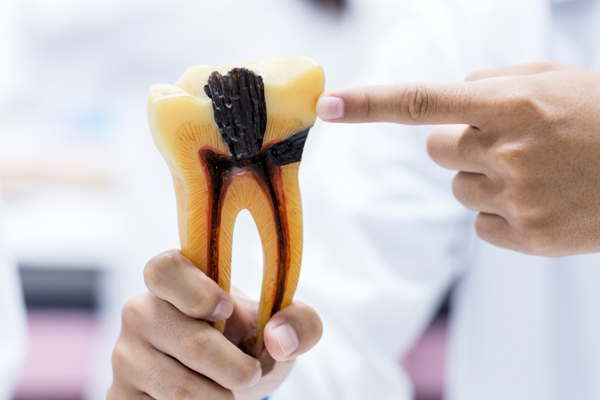Root Canal vs. Extraction: Make the Right Choice for Your Oral Health

Root canal treatment often appears as a reliable option for saving a severely damaged or infected tooth, while extraction removes the tooth entirely. Both options offer advantages and disadvantages, but a few factors help the dentist determine which procedure to perform. Understanding the benefits and considerations of each choice can help you become an active participant in crafting your oral health plan.
Understanding root canal therapy
A root canal procedure targets the infected or damaged pulp. A dentist numbs the area and then creates an opening in the top of the tooth to reach the pulp chamber. The dentist removes decayed tissue, and the inner space is thoroughly cleaned. After cleaning, a biocompatible material fills the canal to prevent further infections. An appropriate restoration, such as a crown, then covers the treated tooth to reinforce structural support.
Root canal therapy allows the tooth to remain functional within the jaw. This approach usually preserves surrounding bone density, maintains natural alignment, and avoids potential gaps that encourage the shifting of neighboring teeth. Retaining natural teeth also supports normal chewing and biting forces, which play a significant role in healthy digestion.
Considering tooth extraction
Extraction involves removing the entire tooth from its socket. This option may become necessary when the tooth's structure is severely compromised or an infection threatens the surrounding bone. Dentists sometimes advise extraction if the tooth is fractured below the gum line or lacks enough healthy tissue to sustain a successful restoration.
Although extraction can relieve pain and remove sources of infection, it creates a noticeable space in the mouth. Therefore, a replacement, such as dental implants, bridge, or partial denture, is necessary to ensure the gap does not lead to shifting of adjacent teeth and possible issues with bite balance. In some cases, an extraction may be more suitable if the tooth is non-restorable, but careful evaluation is always necessary.
Factors influencing the dentist's decision
Before recommending a root canal or extraction, a dentist examines the tooth's structural integrity, the extent of infection or decay, and the patient's overall oral health. Budget, time constraints, and personal preferences may also influence the choice. In many cases, root canal therapy helps preserve a full-functioning tooth, which often promotes more natural chewing and a familiar smile. However, the dentist may recommend an extraction as the more appropriate solution if the tooth has a large-scale fracture or extensive decay that compromises the tooth's foundation.
Restore your oral health at Valley Neighborhood Dental Center
Root canal therapy and tooth extraction address severe damage and infection, but the present distinct outcomes for long-term oral health. A root canal retains the natural tooth whenever possible, preserving important structures that help maintain alignments and normal biting forces. An extraction removes the source of pain and infection but leaves a space that will require an artificial replacement. If you are having problems with one or multiple teeth, contact Valley Neighborhood Dental Center. We can schedule an evaluation to determine the most effective solution to fit your needs.
Request an appointment here: https://www.vndak.com or call Valley Neighborhood Dental Center at (907) 745-1966 for an appointment in our Palmer office.
Check out what others are saying about our dental services on Yelp: Root Canal Treatment in Palmer, AK.
Related Posts
Root canal treatment is often the first line of defense for treating teeth with compromised pulp chambers. The pulp chamber is the innermost layer of a tooth, and it stores nerves, blood vessels, and connective tissues. The chamber is sealed off from the rest of the tooth to protect it against bacteria and other irritants…
The role of preventative dentistry is to minimize the risk of future dental issues in patients. Read on to learn some tips that encourage the prevention of oral issues. If you have experienced and treated dental issues in the past, you will attest that it is better to prevent them from happening in the first…
An emergency dentist provides immediate care for urgent dental issues. Dental emergencies can happen anytime, often causing pain or discomfort that cannot wait for a regular appointment. Recognizing the signs of a dental emergency helps patients seek the right care quickly and can prevent further complications and protect their oral health.A dental emergency calls for…
A broken tooth does not always count as a dental emergency unless it requires immediate dental care. A broken tooth can be the result of biting into something too hard, especially if the tooth has already been weakened by tooth decay. It can also be caused by trauma to the face or habits like teeth…
